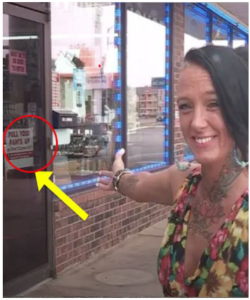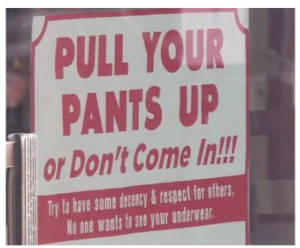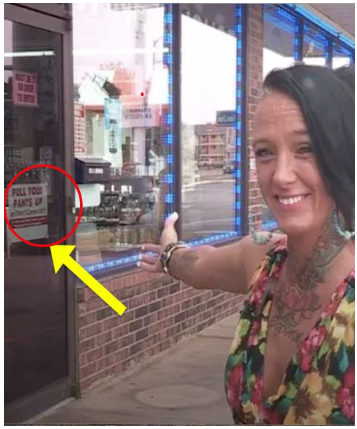This generation has been dubbed the “snowflake generation” by many because people are more likely to take offense easily today.
While there have been some positive changes as a result of this attitude change—outdated social norms are now being challenged, and rightfully so—there are still instances where it seems like we are overreacting to one another’s actions.
Recognizing that not every circumstance calls for a reflexive response, we must strike a balance between personal growth and consideration

We must take the time to listen to each other’s perspectives without jumping to conclusions in order to promote mutual understanding.
Oklahoma’s Midwest Wine and Spirits recently faced an unusual circumstance. They ask customers to behave politely and with respect by posting a sign in their shop window that reads, “Pull your pants up or don’t come in.”.
This is an effort to make everyone who enters the store feel welcome rather than being repulsive or insulting. It was unfortunate that it didn’t take long for this sign to be misinterpreted and spark online outrage.
There was immediate debate over whether or not this request was unreasonable, with some arguing that there is always a threshold at which making a sincere effort to appeal to others crosses over into bullying and discrimination.

Even when someone or a group’s intentions were not malicious, it is frequently simple to recognize them as racists. Everyone involved may concur that creating a welcoming, inclusive environment ought to come before any attempts at provocation.
Customers were outraged by the store’s decision to post the sign because they found it offensive that it had the audacity to tell them what they could and could not wear. The discussion on this subject quickly spread online.
When questioned about the sign, one of the managers, Chad Gilbert, defended it by saying that while sagging pants may be a fashion statement for some, it is not for him and that he finds it offensive.
Customers who enter the liquor store with their pants drooping may find it simpler to commit theft. Sunshine Weatherby, a local, disputed the notion, asserting that such behavior is expected in an establishment that sells alcohol and that more serious criminal activity has taken place in liquor stores.
The argument raises crucial questions about how companies should balance safety concerns with a welcoming atmosphere.
There is no one-size-fits-all solution, but calm debate and deliberate discussion are critical to finding the best option for all parties involved. Is the liquor store’s sign a suitable response? Is it going too far?
By contributing to the discussion in the comments section and raising awareness of this issue by sharing this post on Facebook, you are invited to take part.
